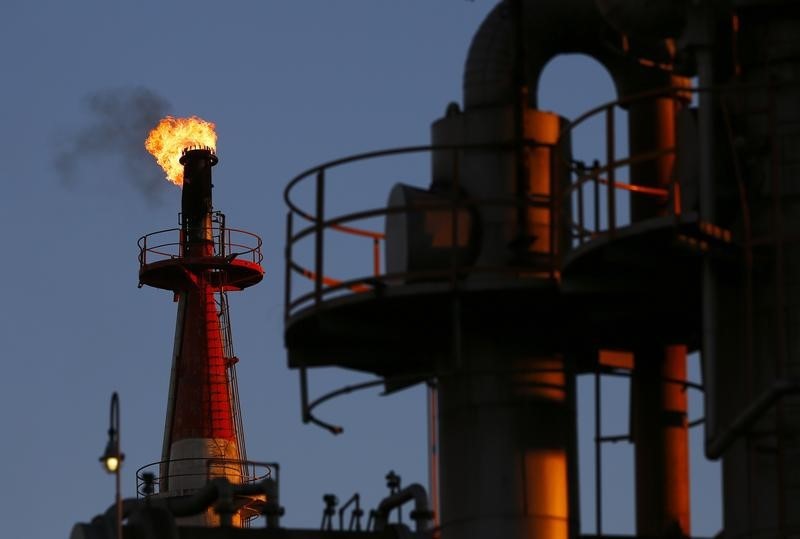By Peter Nurse
Investing.com -- Oil prices rose Friday, but are still on course for their lowest weekly close this year and their biggest weekly drop since March on concerns about the global economic outlook.
By 09:30 ET (14:30 GMT), U.S. crude futures traded 0.6% higher at $71.89 a barrel, while the Brent contract rose 0.5% to $76.55, but both contracts are both set for weekly losses of around 10%.
The U.S. Federal Reserve is widely expected to agree to a smaller 50 basis point interest rate hike next week. However, inflation has proved to be fairly sticky, as evidenced by data released Friday showing U.S. producer prices rising faster than expected in November, suggesting that the U.S. central bank may have to keep interest rates higher for longer, weighing on growth in the largest economy in the world.
Similarly, the European Central Bank is set to continue hiking rates next week, despite the region's economy almost already being in recession, while surging infections in China as restrictions are lifted will likely depress economic growth in the world’s largest crude importer.
That said, the market has been supported Friday by disruptions to global supply.
The Keystone oil pipeline system remained shut Friday after crude leaked into a creek in the U.S. Midwest earlier in the week, and the timing of the restart remains uncertain.
“The 600Mbbls/d crude oil pipeline is a major link between the oil fields in Canada and refineries in the U.S., hence any prolonged disruption could result in tight oil supply in the U.S. market,” said analysts at ING, in a note.
Additionally, there is still a queue of oil tankers being held up by Turkish authorities on their way to the Mediterranean from the Black Sea, likely as a consequence of the G7’s introduction of a price cap on Russian crude exports.
The European Commission denied that the price cap was the reason for the number of tankers waiting to pass through Istanbul's Bosphorus Strait, but Turkey has required vessels to provide proof of insurance since the start of the month.
Russia will respond to the decision to instigate the price cap, President Vladimir Putin said on Friday, potentially cutting Russian supply into an already tight market.
“I have already said that we simply will not sell to those countries that make such decisions," Putin told reporters in Bishkek. "We will think, maybe even about the possible, if necessary...reduction in production."
That said, Bloomberg reported that the price of Russian crude in Asia appears to be holding well above the $60 a barrel cap with the price cap having little impact in that market.
Baker Hughes’ rig count, which hit its highest since March 2020 last week, will round off the week later, along with the CFTC’s positioning data.
